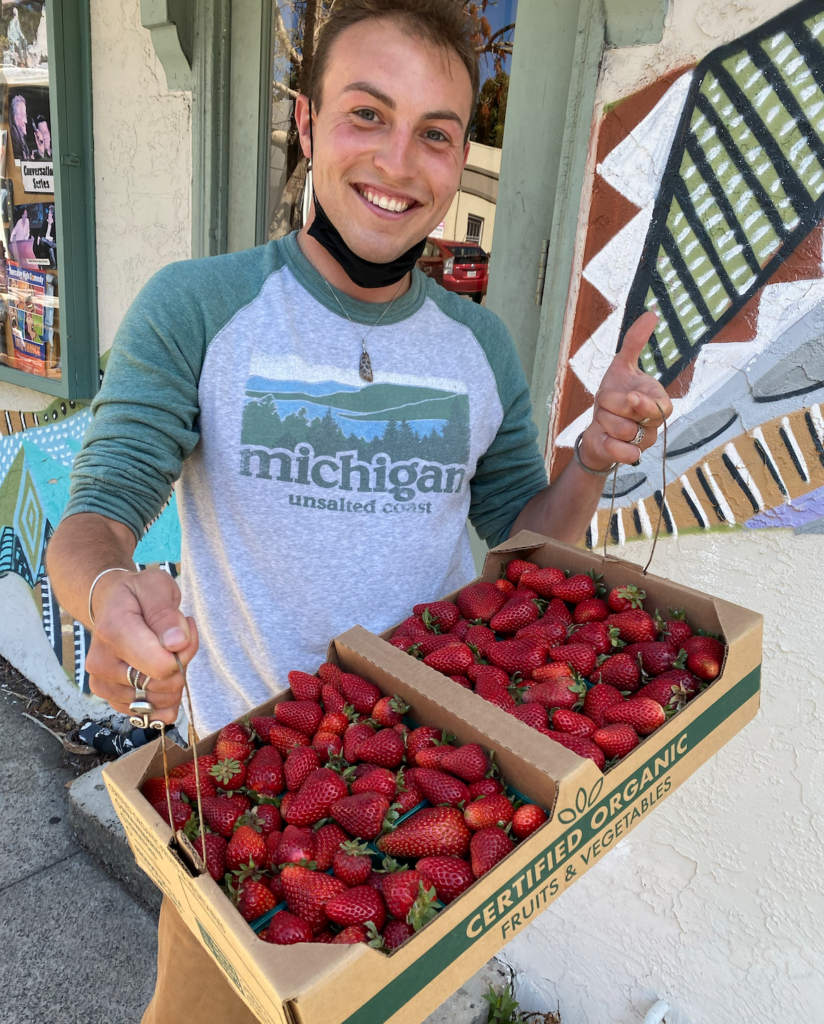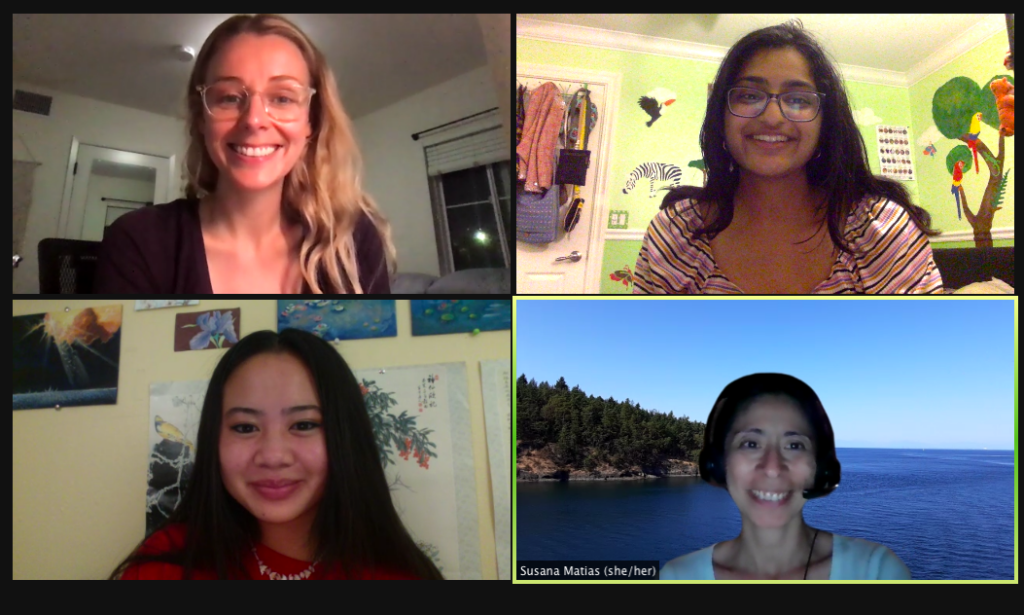Audrey Slatkin is a fourth-year Conservation and Resource Studies major with an emphasis in Food Systems and Environmental Business. She served as the Food Recovery Lead at the Berkeley Basic Needs Center, which redistributes leftover food from restaurants and dining halls on campus to Berkeley community members who struggle with food insecurity. Since April 2020, Slatkin has held multiple roles at the Farmlink Project, a volunteer-run, national non-profit seeking to reduce food waste and combat hunger, before becoming Director of Sustainability in January.
Farmlink began in response to the coronavirus pandemic, as global food supply chain disruptions caused food insecurity and shortages of essential goods. The organization connects farmers with surplus or unmarketable produce with communities in need of food. It’s run predominantly by college students and recent graduates from across the country, and Berkeley students have been at the forefront of the initiative, with about 20 Berkeley students involved since the pandemic began. Many of the Berkeley students worked with Farmlink as their community partner for their Food Systems Minor Community Engagement capstone.
Thus far, Farmlink has delivered over 40 million pounds of fresh produce to communities in 48 states.
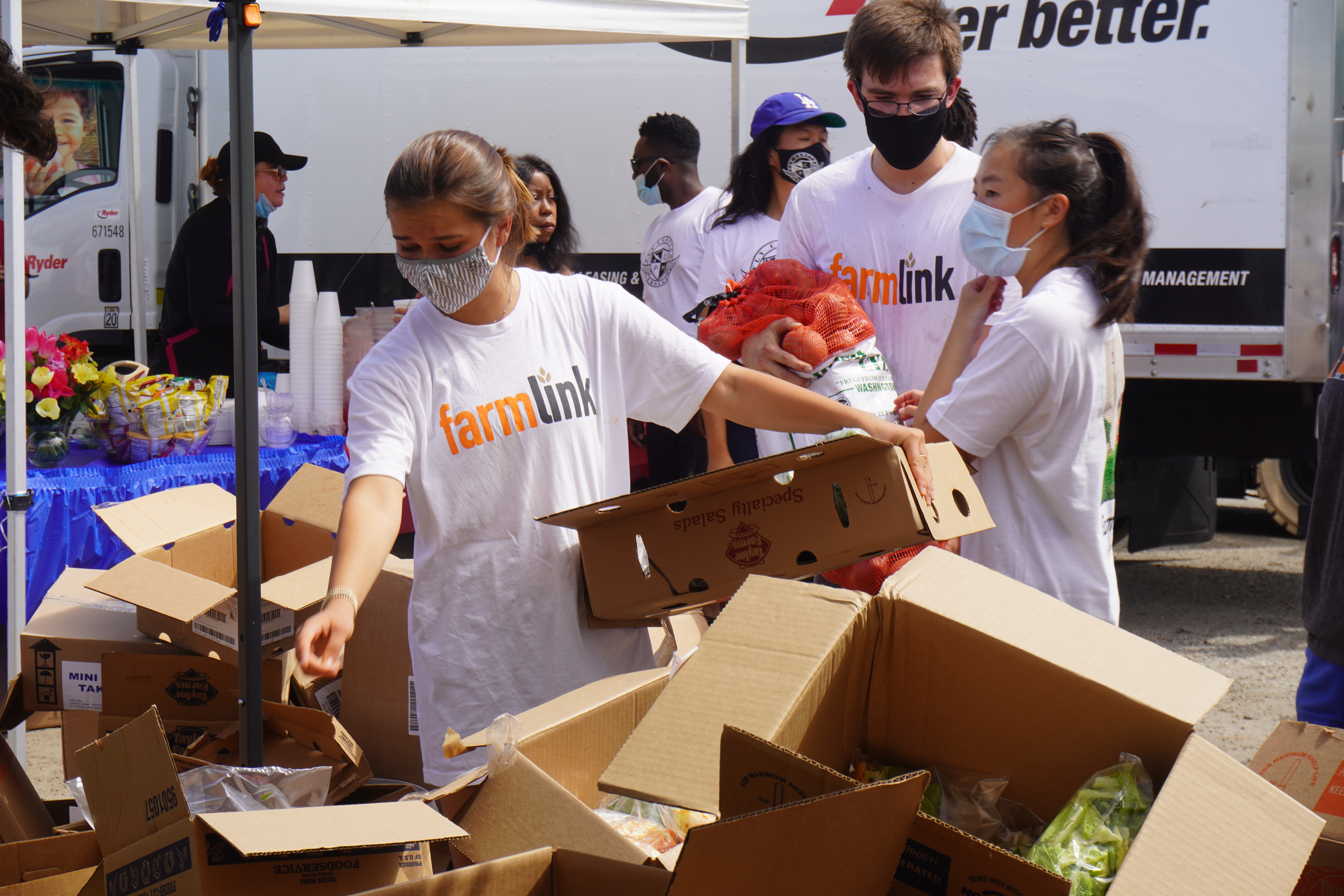
How did you first get involved in Farmlink?
On April 11th of last year, The New York Times published an article entitled “Dumped Milk, Smashed Eggs, Plowed Vegetables: Food Waste of the Pandemic“. As a Conservation and Resource Studies major with an emphasis in food systems and waste, I wasn’t surprised but was deeply moved and concerned. Simultaneously, a few friends had read the same article and it conjured up similar feelings in them. They sprung into action and dreamt up The Farmlink Project with no experience or prior knowledge—just a fervent drive to grow the project. When I heard what they were doing, I called one of them up and explained that I was doing very similar work at Berkeley, but had long dreamt about repurposing lost food on a larger scale. I officially became a “Farmlinker” the very next day, and was the first of many Cal students to join the team!
Where did you first get interested in food waste and food systems?
When I was 8 years old, my family and I went to see the movie WALL-E. Before this, the word conservation wasn’t even in my lexicon, nor did I understand that human activity and greed were compromising the health of our planet. That movie made me realize for the first time that humanity stood to lose so much of the beauty of the natural world. I remember walking out of the theater and feeling the weight of the world on my shoulders.
Since then, I have dedicated my education to conservation and sustainability efforts, especially within the food space. Working at my family’s restaurants during the summers, I was endlessly frustrated by the amount of perfectly good food that was scraped off every plate. In high school, I designed a donation model in conjunction with my local food bank, whereby volunteers would retrieve landfill-bound leftovers from restaurants and repurpose them into meals for those in need. Since coming to Berkeley, I’ve continued to merge my passions for environmental activism and social service, and I served as the Food Recovery Lead at the UC Berkeley Basic Needs Center before joining Farmlink.
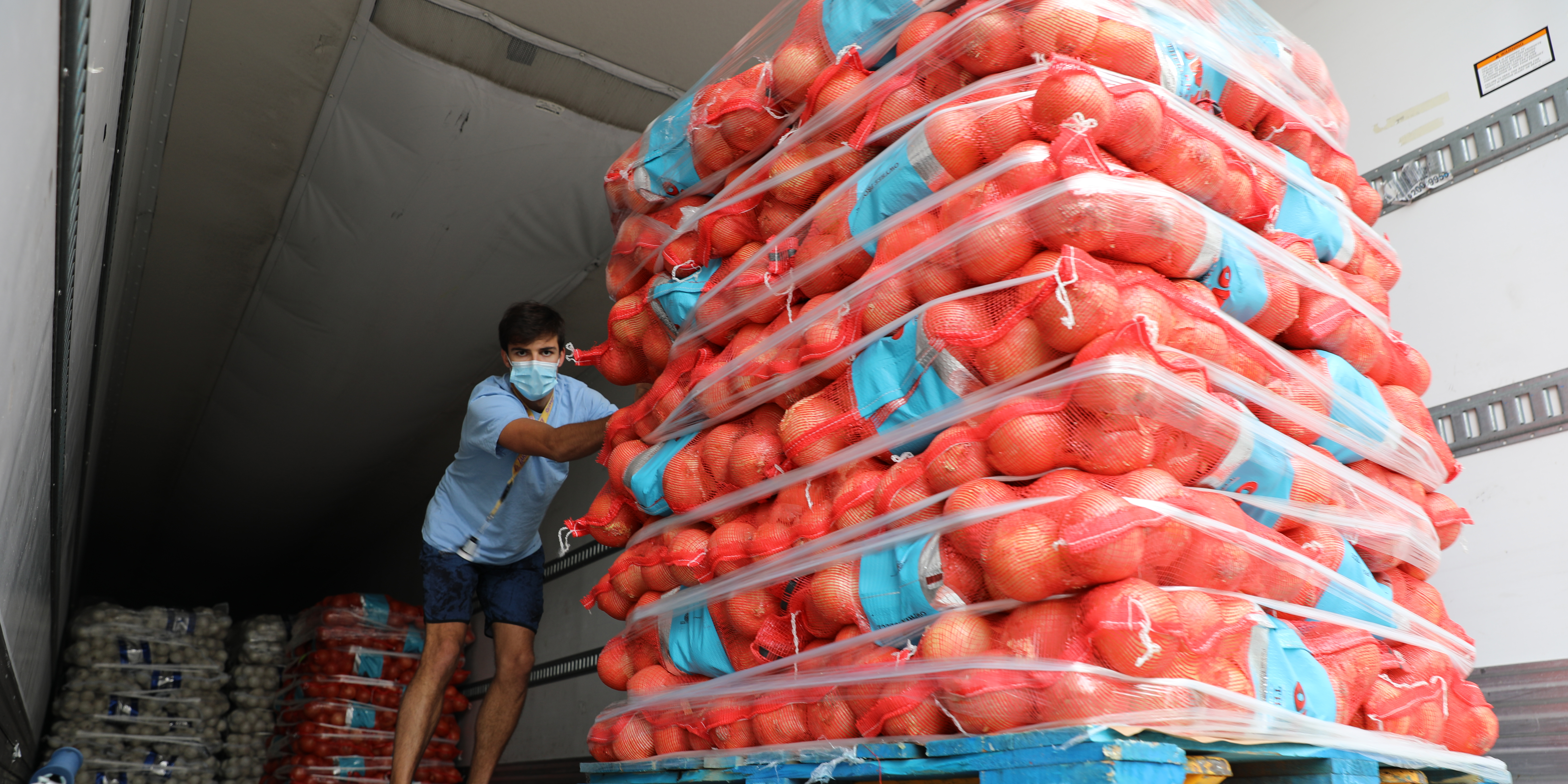
Can you tell me more about working at Berkeley Basic Needs Center?
As the Food Recovery Lead for my first three semesters at Cal, I led a team of student interns working to eradicate food waste and insecurity on campus. We collected leftover food from dining halls and campus eateries and repackaged them into meals for the Basic Needs Center Food Pantry. In my last semester as lead, we diverted over 1,500 pounds of food from the landfill and fed more than 1,000 students who would have otherwise lacked consistent food access.
What does your specific role of Director of Sustainability at Farmlink entail?
As Director of Sustainability, I have the honor of leading an incredible team of 12 as we work to incorporate sustainability into the Farmlink story and actualize our environmental goals. Most people are entirely unaware of the grave impacts that food waste has on our environment. In fact, if food waste itself were a country, it would be the third largest emitter of greenhouse gases after the U.S. and China. By diverting food from landfills and preventing it from rotting in the fields, we are subsequently saving millions of pounds of carbon dioxide from being released into our increasingly fragile atmosphere.
My team is focused on questions like: How can we reduce the greatest amount of carbon emissions? How can we monetize the prevented emissions in the form of carbon offsets to secure an alternate source of revenue for our organization so that we can sustain our operations for generations to come?
An average day consists of a team-wide morning meeting, followed by research, outreach to potential carbon offset buyers and project developers, and meetings with other people or organizations working at the intersection of food and the environment. Our goal is not just to learn as much as possible from each other, but also from as many people in the climate sector as we can. We are all working towards giving our planet a fighting chance, and together we can do so much faster and more efficiently.
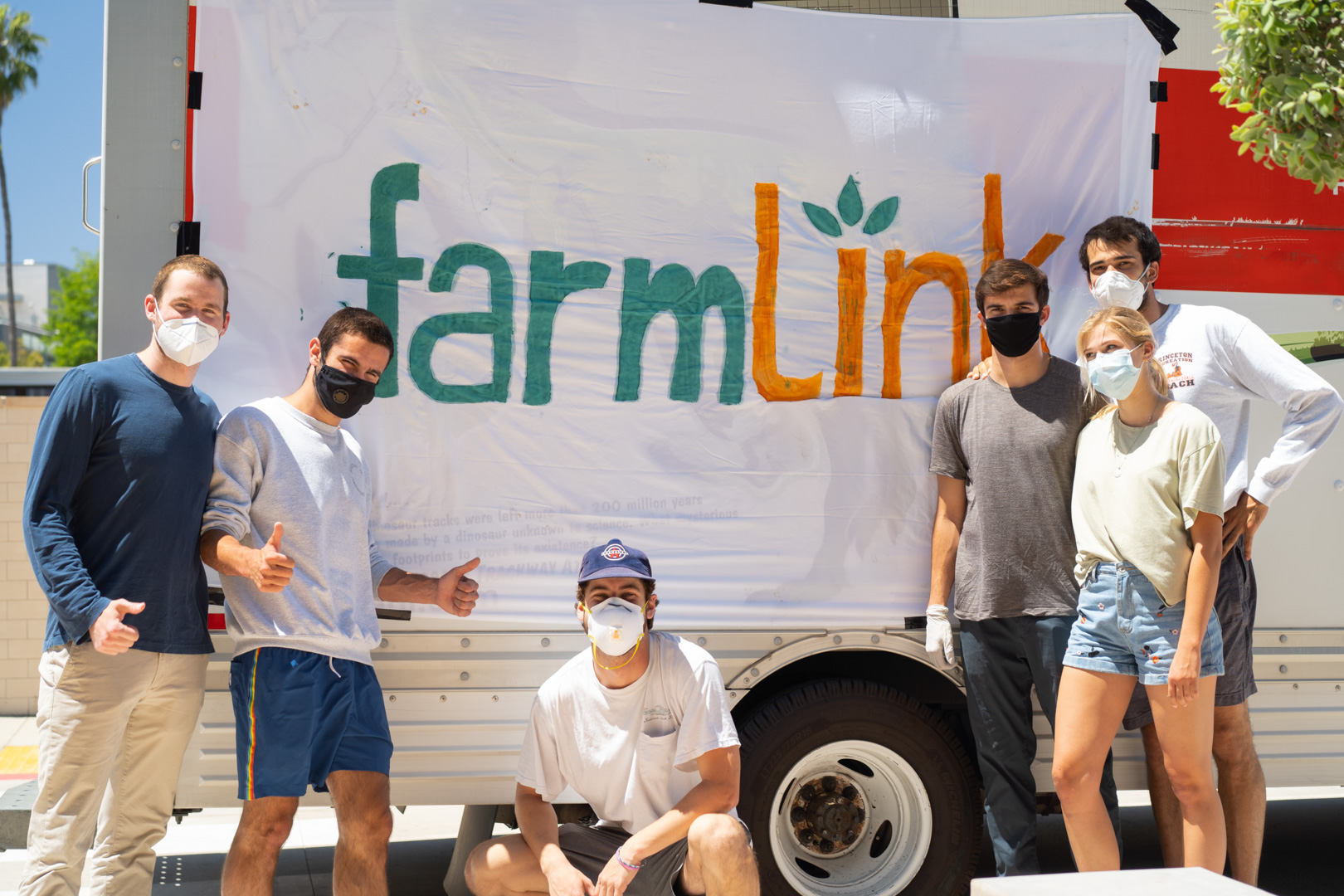
How would you describe the project’s impact thus far?
Since beginning a year ago, The Farmlink project has moved over 40 million pounds of surplus produce, or over 33 million meals, from farms to food banks in 48 states. In addition, our efforts have helped prevent over 40 million pounds of CO2 from being emitted into the atmosphere. We have partnered with Chipotle, Uber Freight, Kroger, Guayaki, Smart & Final and more, all of whom have helped us reach as many people and farms as possible. We’re honored to have been featured in several news outlets including The New York Times, The Today Show, Variety Magazine, ABC World News and many more. Most recently, our CEO and co-founder, James Kanoff and Aidan Reilly, were awarded the Congressional Medal of Honor Service Award for creating The Farmlink Project.
Does the Farmlink student-run model have any implications for social action?
Learning about the climate crisis means facing a lot of really disheartening truths. Many students in environmental classes share a sense of doom or despair, but unlike the generations before us, we don’t have the luxury of denial. None of us are planning on Mars as our Plan B. The climate crisis is here, it’s worsening, and our elders have made it clear that it’s up to our generation to fix it. Possibly the most gratifying part of Farmlink is that we are all young adults. We have all read the discouraging reports and seen the horrifying statistics about what we stand to lose if society continues business as usual. And we have all chosen to take action rather than surrender. Working alongside my Farmlink peers has instilled in me a new sense of hope for climate salvation. In just a year, we’ve all proven to each other that we can rise to this momentous occasion and change the course of our futures and our children’s futures, if we do it together.
What projects are coming down the line for Farmlink?
In addition to the food redistribution work that Farmlink does, our Sustainability Team has just launched Carbonlink, Farmlink’s Carbon Offset for a Sustainable Food System. Today, our unsustainable food system is responsible for over 25 percent of global emissions. Carbonlink is the first comprehensive carbon offset that can help change that statistic and transform our food system to fight climate change while providing meals to millions of families. After a year of talking to farmers, suppliers, processors, and consumers, we identified points along the food system that have the most potential for environmental improvement with direct investment through carbon offsets. We’ve partnered with experts and project developers to start providing individuals and companies in the food sector with a way to offset their own carbon footprint—and all while furthering Farmlink’s mission to bridge the gap between food waste and insecurity.
What has it been like doing this work while a student during the pandemic?
Since so many college campuses closed in March 2020 in response to COVID-19, we have been fully remote since our conception. Most of us have never met outside of the confines of our zoom screens. It was incredibly gratifying to be a part of something larger than myself while stuck inside. Volunteering not only helped me stay grounded and keep perspective, but also served as a welcome distraction—other than Tiger King—to keep me occupied as lockdown began. After months of working remotely, restrictions started to lighten up and the first thing we all wanted to do was meet each other in person. I’ve met probably 15 Farmlinkers face to face by now, and we are currently planning a Berkeley Farmlink lunch event.
Each Farmlink volunteer I meet continues to affirm that our community is made up of truly special people. Each of us are so different yet so similar, not only in the values we hold true, but in this magical shared energy we all radiate. Each new Farmlink friend I’ve made has been intelligent yet personable, so driven but still so warm and generous with their time. Especially after such a socially isolating year, I feel incredibly lucky to have formed a new group of friends, all of whom I believe are worthy of their own medals of honor!
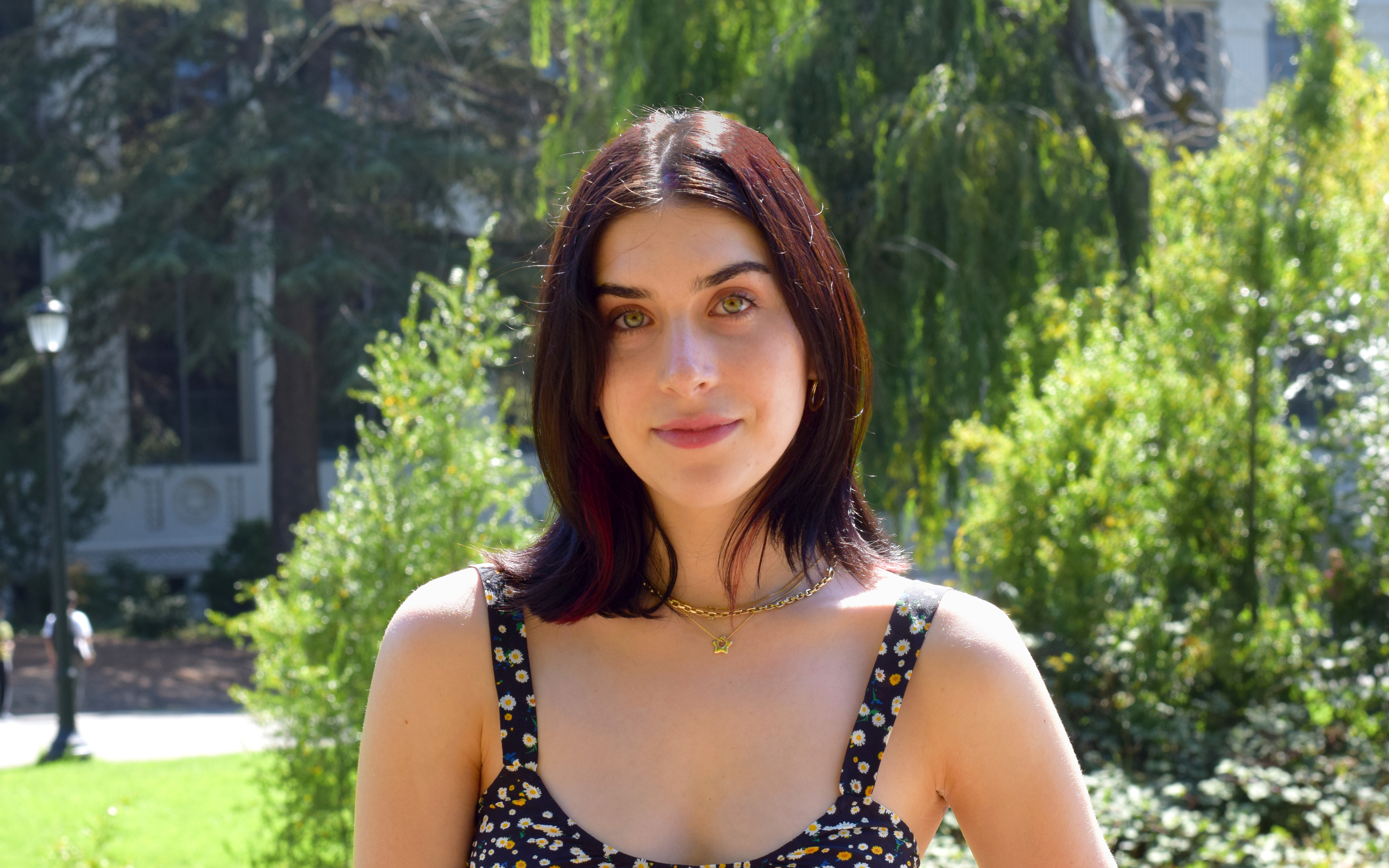
During professor Kathy De Master’s course “Sociology and Political Ecology of Agro-Food Systems,” I had the opportunity to grow my understanding of food systems, especially from a policy perspective, and connect with Berkeley students who were interested in joining Farmlink. Since our start with Farmlink, our Berkeley Farmlink family has grown to include almost twenty volunteers, many of whom are students in Rausser College! Claire Rider (’22 Anthropology, American Studies) is currently working on starting an official in-person Cal Farmlink chapter. We just finished recruitment for volunteers for summer 2022 and will likely be recruiting again for the winter and spring semesters in December!
What is your next move following graduation?
I am graduating in December and moving to New York, where I hope to get a job working in the environmental sector. More specifically, I hope to work for a tech startup I’ve been hugely inspired by that has been working to eradicate food waste and insecurity just as we have been doing at The Farmlink Project. This really is my life’s work, and I will find a way to continue doing it until our food system can truly serve both people and the planet.

